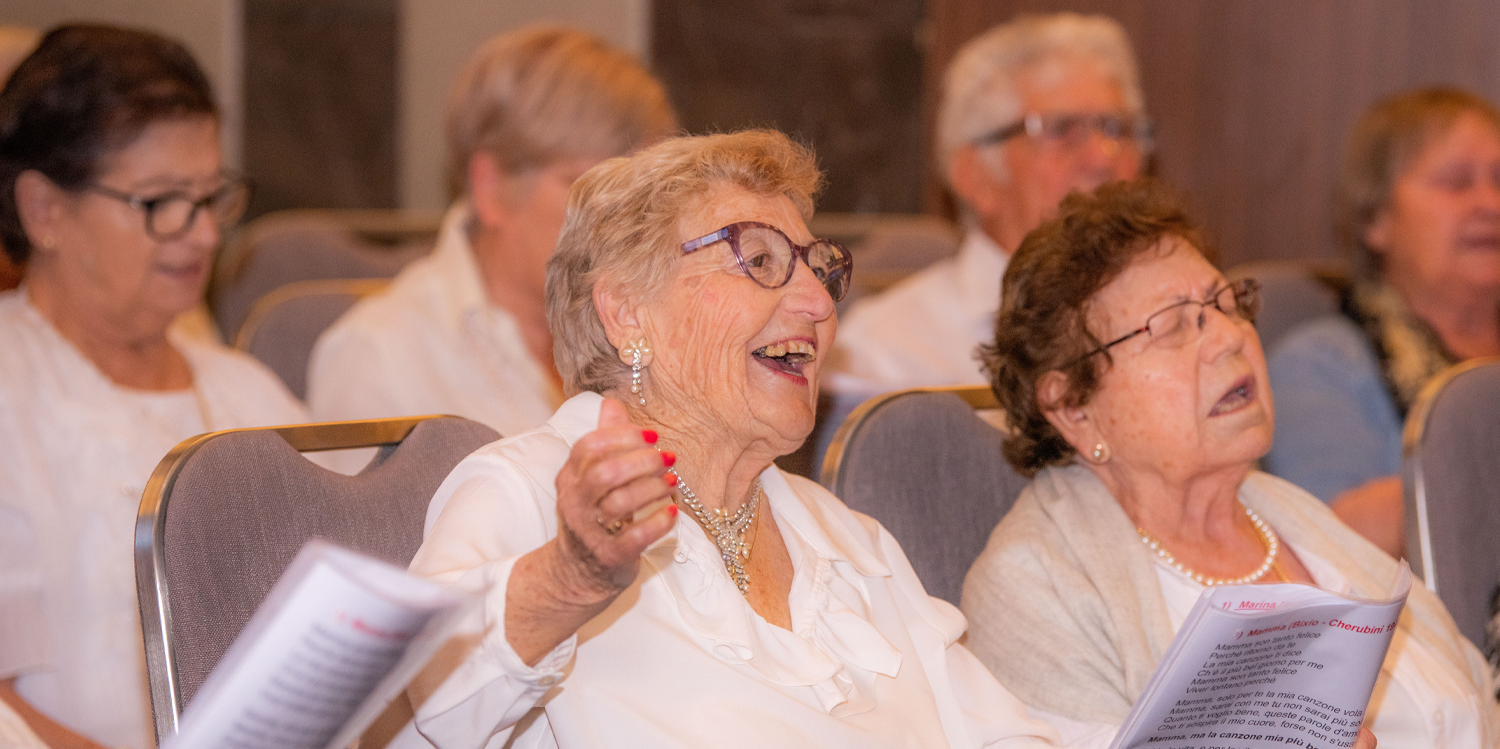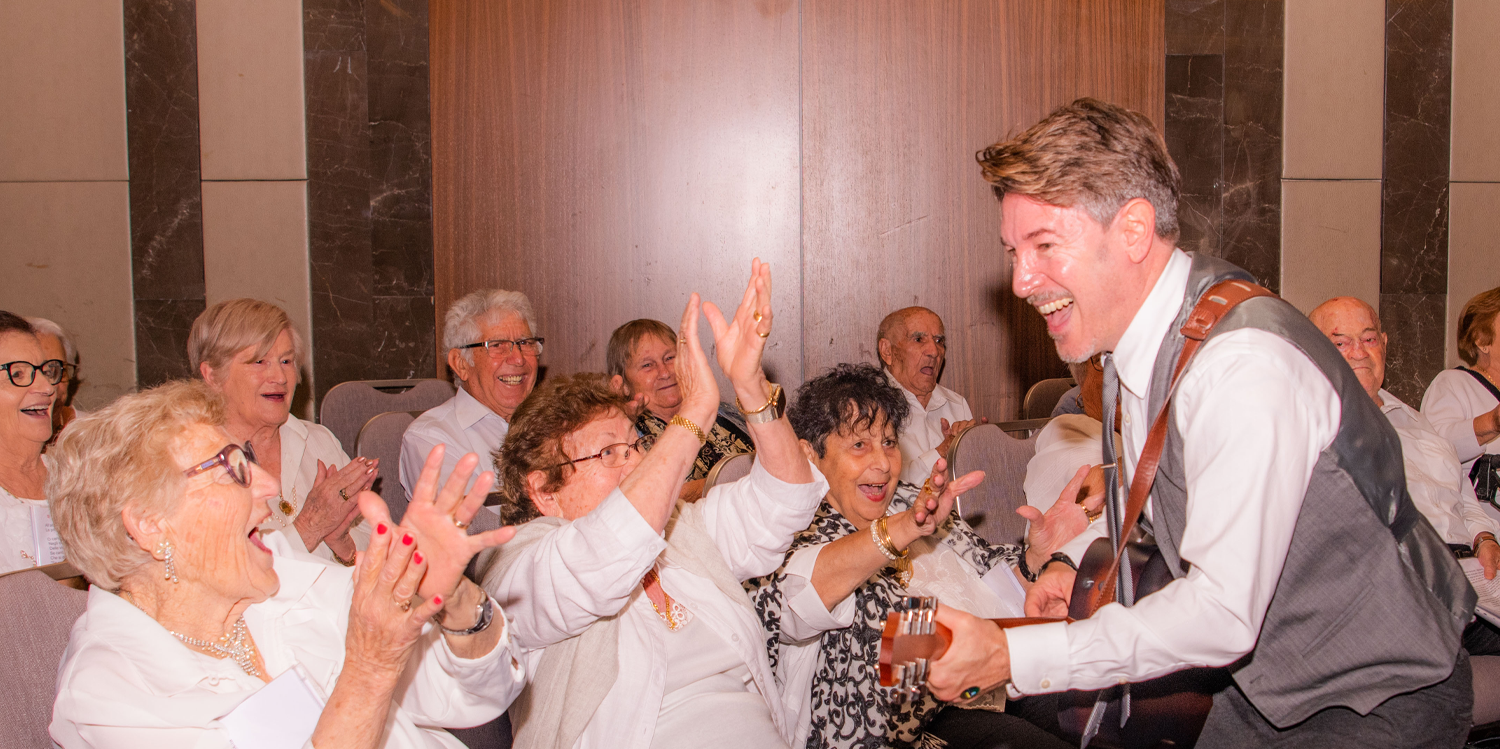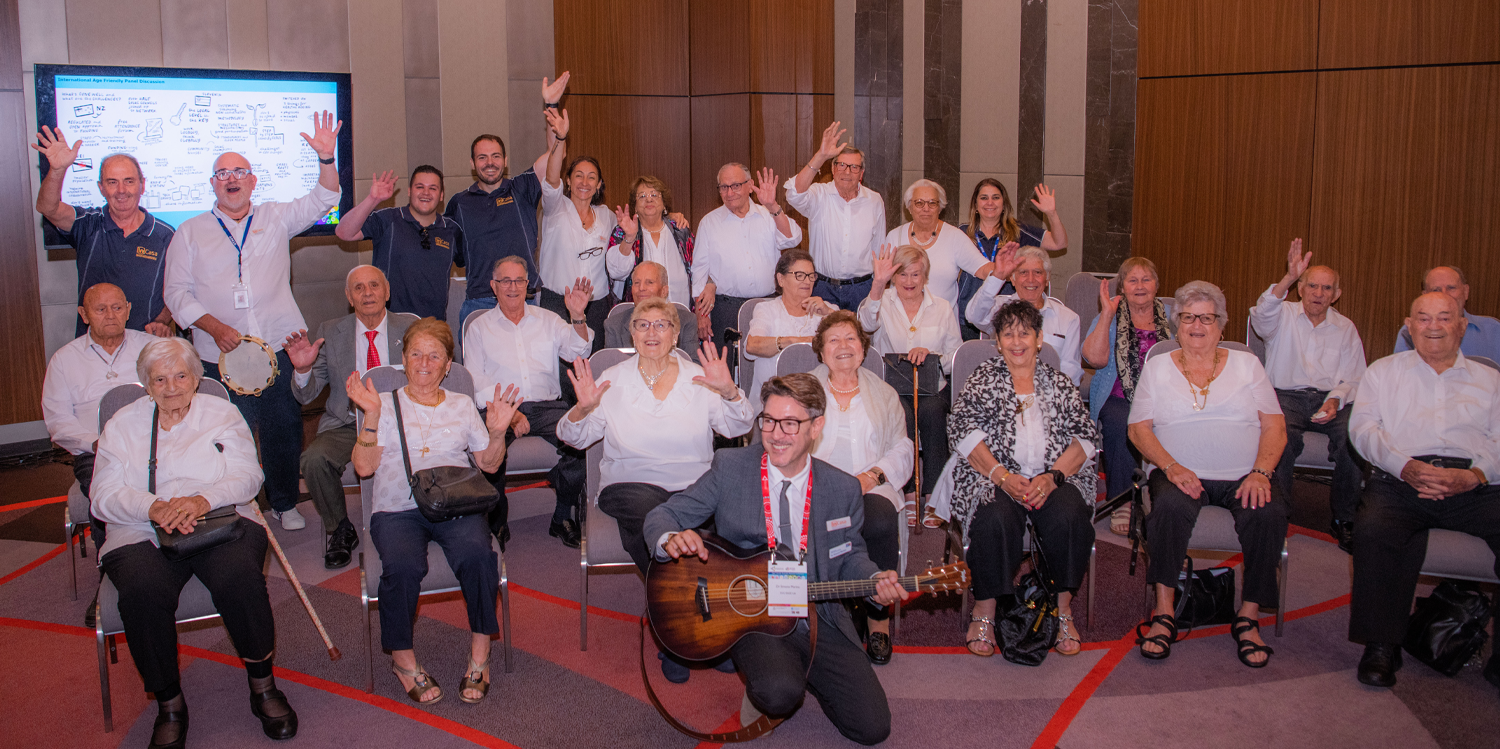Research taking place in an aged care home in Fremantle is highlighting how maintaining connection and wellbeing through culture can be a form of therapy for those living with dementia.
The innovative project harnesses the power of music and storytelling for older Italian migrants.
Comusichiamo project, led by ECU post-doctoral research fellow Dr Simone Marino, engages participants and their families in co-creating songs inspired by melodies from their past, while also developing life-story booklets that integrate their first language and memories.
The activities, combined with group choir sessions, are delivered in an attempt to maintain cognitive function, reinforce social identity, and enhance overall wellbeing.
Dr Marino said music had the power to unlock deep-seated memories, especially when it was culturally meaningful.
 “For many Italian migrants, singing traditional songs or hearing familiar instruments evokes emotions and memories that reconnect them with their past and strengthen their sense of self,” she said.
“For many Italian migrants, singing traditional songs or hearing familiar instruments evokes emotions and memories that reconnect them with their past and strengthen their sense of self,” she said.
Based at InCasa, an aged care home and community centre near Fremantle, the project involves 12 participants in individual sessions and about 30 people in group choir activities.
“Co-creating culturally tailored songs and life-story booklets in participant’s first language improves mood, enhances physical and social engagement, and fosters better communication,” Dr Marino said.
“And singing in the choir reinforces a sense of belonging, strengthening social bonds and encouraging emotional expression, and brings laughter and joy.
“This shared experience not only promotes cognitive stimulation but also restores a sense of agency, as participants actively shape their own cultural and emotional narratives.”
RELATED: Music for dementia: Current evidence, future direction
Dr Marino’s inspiration for Comusichiamo came from her experience seeing her grandfather Nonno Nino experience cognitive decline.
 She said despite his diagnosis, at times “he would light up when telling stories from the war”.
She said despite his diagnosis, at times “he would light up when telling stories from the war”.
“This, along with my own experiences as an immigrant and researcher among Italian migrants in Australia, led me to explore how cultural engagement can play a vital role in dementia care.”
Dr Marino has had a paper focusing on one of the program participants, Giuseppe, published in the Journal of Intercultural Studies.
“Overall, the case study indicates positive changes in Giuseppe, including progress in communication and social engagement, which could be described as a re-activation of his personhood, with particular relevance to his cultural identity,” the paper stated.
Dr Manino found after several visits Giuseppe began to react more to the song being used in the program.
“This suggests that such music programs should be long-term,” she wrote.
“Giuseppe seemed, from an anthropological point of view, to have validated his ‘ontological being’; his cultural and social identity, concretised in the song itself.”
Dr Marino noted that further research with a larger sample of participants was needed I to provide more empirical evidence about the role of music and first language in the cultural wellbeing of participants of migrant backgrounds.
Want more news, clinicals, features and guest columns delivered straight to you? Subscribe for free to WA’s only independent magazine for medical practitioners.
Want to submit an article? Email [email protected]


